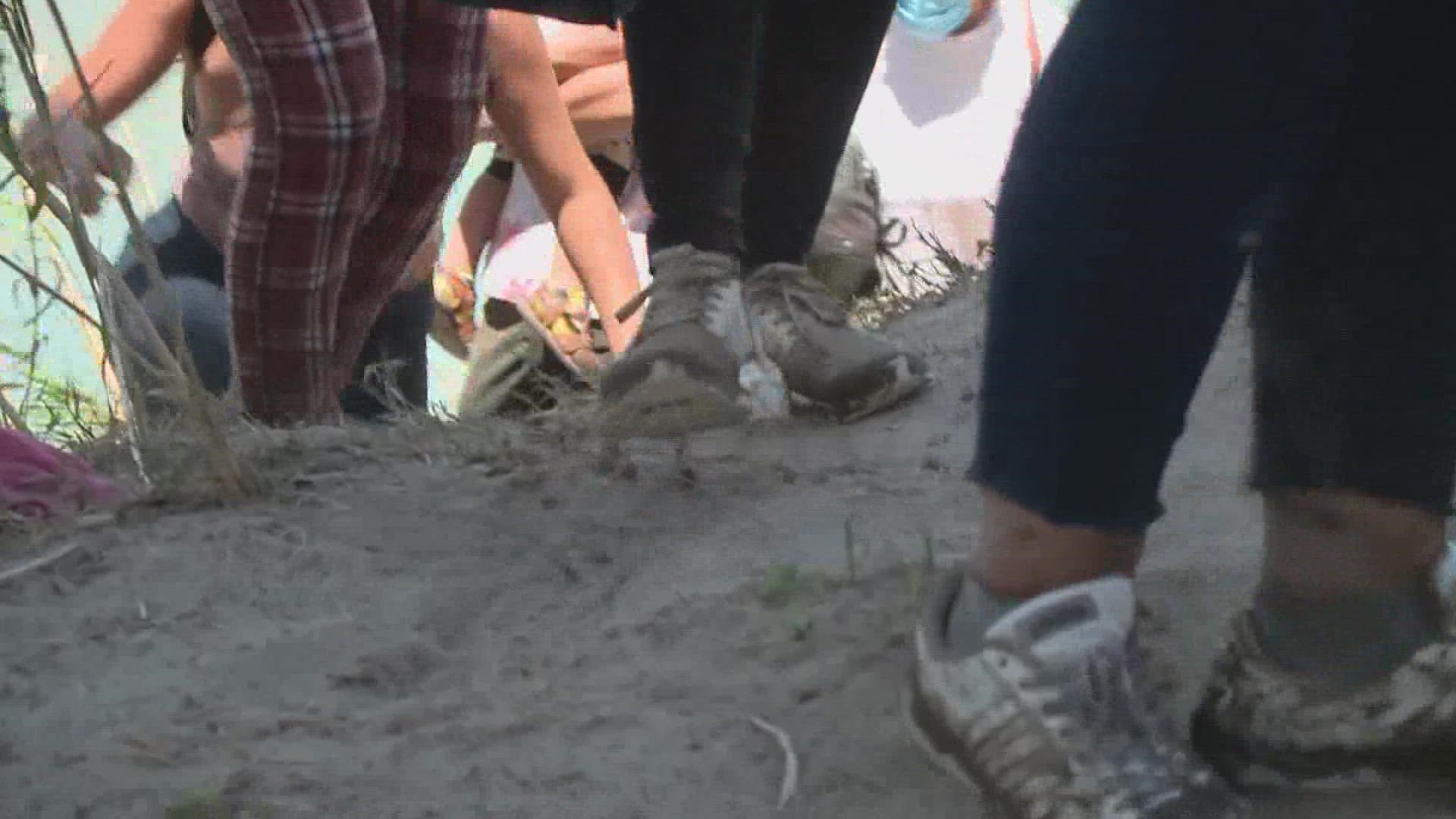SAN ANTONIO — Migrants travelling through San Antonio in June died in a hot trailer despite paying smugglers extra money for 'VIP travel' protections, some relatives say.
Of the 53 victims, at least three paid guides to ensure security and comfort on the journey through Mexico. Still, they did not survive the deadliest human smuggling event in recorded American history.
Reuters first identified the three victims.
Pablo Ortega's family sold a small home to afford extra benefits for the 20-year-old. He needed a good job to support his girlfriend, pregnant with the couple's son.
Once he crossed the border, Pablo intended to reunite with his mother in Florida. He would get a job and send earnings back to Mexico.
"He felt the need to leave to be able to give the best to his son and wife," Pablo's sister, Rosa Ortega, told KENS 5 in Spanish via Facebook messenger.
The siblings communicated by text through nearly every leg of Pablo's journey. He sent videos to Rosa, illustrating the 'VIP travel' perks.
Pablo and other migrants slept on beds in private residences, stocked with pizza and beer. In the evenings, they played video games and watched television.
The trip cost Ortega's family $13,000.
"He paid that because they told him he was safe there and there were not many risks to cross," Rosa Ortega said. "It was something 100 percent safe for all."
More smugglers are offering special travel accommodations for a steep price, said Elmer Romero, an educator for the National Day Laborer Organizing Network.
"They use buses and private cars. They stay in a hotel or residential houses - very nice, some of them," he added. "(They may also get) the opportunity to try again if they're arrested along the way."
Romero said the smugglers call the deal "Paquete de translado complete," or the complete transfer package. Traffickers have offered these perks for at least 20 years, though it's recently become more commonplace.
It's a sort of investment, Romero explains, since entire families' economic security may depend on a relative's safe arrival in the United States.
"Families are willing to sell everything to get loans and to pay for more safe travel for the person," Romero said. "They want to invest in this person for a better future."
Immigrants who work with Romero have mostly told him the smugglers honor their promises in Mexico, he said.
"But (the smugglers) lose control when they are at the border," he said.
Stateside smugglers mix migrants who paid for 'VIP travel' with migrants who did not. Expensive travel packages often end in 18-wheeler trailers, Romero said.
But some migrants don't realize they'll have to risk the big rig ride when they set out on the journey.
Pablo Ortega didn't initially expect to ride in a big rig, his sister said. He believed he would travel to his destination in a private vehicle.
Once Pablo crossed the Rio Grande, he told Rosa he was worried about the number of people arriving to the stateside safe house. Then, traffickers told them they would spend three hours in a trailer before private vehicles picked the migrants up, Rosa said.
"I told him to move forward in the trailer so he would not suffocate," she added.
Rosa buried Pablo in Mexico in July.
"I would like to see my brother alive again," she said. "All his plans and dreams that had to fulfil did not come true."
She said she's "more or less getting used to" the pain left in his absence.
Romero smirked that 'VIP' should actually stand for 'Vulnerable Immigrant Paying too much.'
"They don't guarantee anything," he said. "This 'VIP'... it's a lie."

